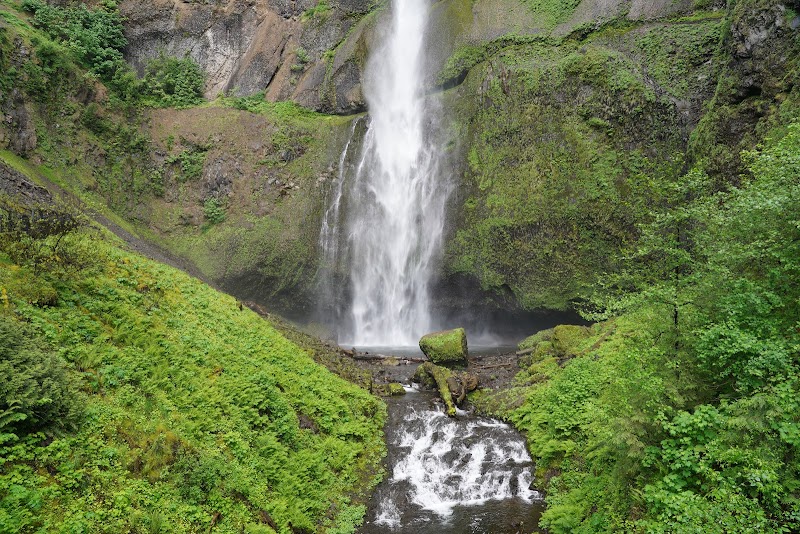
The Carbonado Trail Run: Racing Through Washington’s Forested Pulse
The Annual Trail Run Race in Carbonado, Washington, offers a rigorous 8-mile experience through dense forests and rugged foothills. This event blends thrilling elevation challenges with scenic overlooks, ideal for runners and hikers looking to engage with a vibrant Pacific Northwest trail.
Hydrate Early and Often
Take advantage of aid stations at key points along the course but carry personal hydration as weather can shift quickly.
Choose Trail-Specific Footwear
Wear shoes with solid grip and ankle support to handle varied terrain—muddy roots and rocky descents are common.
Pace Your Effort on Climbs
Steep ascents require energy management; slow steady hiking or power walking at times will conserve strength for technical sections.
Arrive Early to Acclimate
Carbonado’s elevation and trail conditions can be demanding, so settle in a day early to adjust and check race logistics.
The Carbonado Trail Run: Racing Through Washington’s Forested Pulse
Every year, the small town of Carbonado, Washington, awakens with the steady pulse of runners lacing up for the Annual Trail Run Race. This event is more than just a competition — it’s a direct engagement with the rugged trails winding through forested hills and open vistas, situated just outside the edges of Mount Rainier National Park. The course covers approximately 8 miles and demands respect with an elevation gain near 1,200 feet, challenging participants with a blend of steep climbs, technical descents, and well-trodden singletrack paths that stretch over dirt, roots, and occasional rocky stretches.
Starting at the town’s historic trailhead, runners are immediately swallowed by towering Douglas firs that seem to lean inward, daring each runner to keep pace or fall behind. As the course ascends, the terrain shifts—sharp inclines push muscles and will alike, while shaded sections offer relief as gentle breezes move through the canopy, whispering motivation.
By mid-run, the trail opens to sweeping views of the Cascade foothills, the landscape daring you to pause, catch breath, and scan the horizon. The trails demand focus—roots jut out like hidden obstacles, and rocks often challenge foot placement, requiring durable footwear with solid grip and ankle support.
Hydration is crucial. Aid stations placed strategically at miles 3 and 6 provide a lifeline: water, electrolytes, and a quick moment to reset. The race timing, typically in early September, coincides with stable weather conditions, though sudden afternoon showers can surprise those unprepared.
Arriving in Carbonado a day early offers time to adjust, explore the small-town charm, and gear up alongside fellow competitors. The local community supports the event heartily, providing spirited cheers and essential resources.
Participants should prepare physically for sustained climbs and technical trail running, balancing training in elevation and varied terrain for best results. A clear understanding of the course layout, combined with practical gear and solid pacing strategy, turns the race from a challenge to a rewarding exploration of one of Washington’s lesser-known trail gems.
Whether you’re chasing a personal best or soaking in the natural energy of the run, the Carbonado Trail Run is a brisk, beautiful invitation to engage with the relentless, fiercely independent spirit of the Pacific Northwest wilderness.
Nearby Trips
All Adventures
Boat Charters
Water Activities
Adventures near Carbonado, Washington
Discover the unique and memorable adventures that make Carbonado, Washington special.
Frequently Asked Questions
What is the total distance and elevation gain of the Carbonado Trail Run?
The race stretches roughly 8 miles with about 1,200 feet of cumulative elevation gain, featuring a mix of steep ascents and technical downhill sections.
Are there aid stations or water points along the course?
Yes, runners will find aid stations around miles 3 and 6, offering water, electrolyte drinks, and light snacks to sustain energy.
Is the trail suitable for beginners or casual hikers?
While the race is designed for runners, casual hikers with reasonable fitness can enjoy parts of the trail; however, some steep and rocky sections require care.
What wildlife might I encounter during the run?
The forest hosts black-tailed deer, varied bird species including woodpeckers and jays, and occasionally signs of black bears, so staying alert and respectful is key.
How do weather conditions typically affect the race?
The early fall timing usually provides stable, dry weather, but sudden rain showers and cooler temperatures can occur, making layering and weather-proof gear helpful.
Are pets allowed on the trail during the race?
Due to safety concerns during the event, pets are generally not permitted on race day, but they may be allowed on the trails on non-race days.
Recommended Gear
Trail Running Shoes
Deliver traction and support needed for rocky and root-strewn sections of the course.
Hydration Pack or Belt
Keeps you hydrated on the go, critical during warmer weather and longer race portions.
Lightweight Windbreaker
Protects against chilly winds and unexpected showers, especially during later season runs.
Trail Running Socks
Offer moisture management and prevent blisters over rough terrain and multiple miles.
Local Insights
Hidden Gems
- "The overlook near mile 5 offers a secluded vantage of Mount Rainier framed by cedar groves, often missed by racers rushing through."
Wildlife
- "Keep an eye out for pileated woodpeckers and the elusive Pacific tree frog, whose calls punctuate the trail’s quieter moments."
History
"Carbonado’s trail system traces back to logging routes from the early 1900s, echoing the town’s coal mining roots and evolving into recreational paths today."
